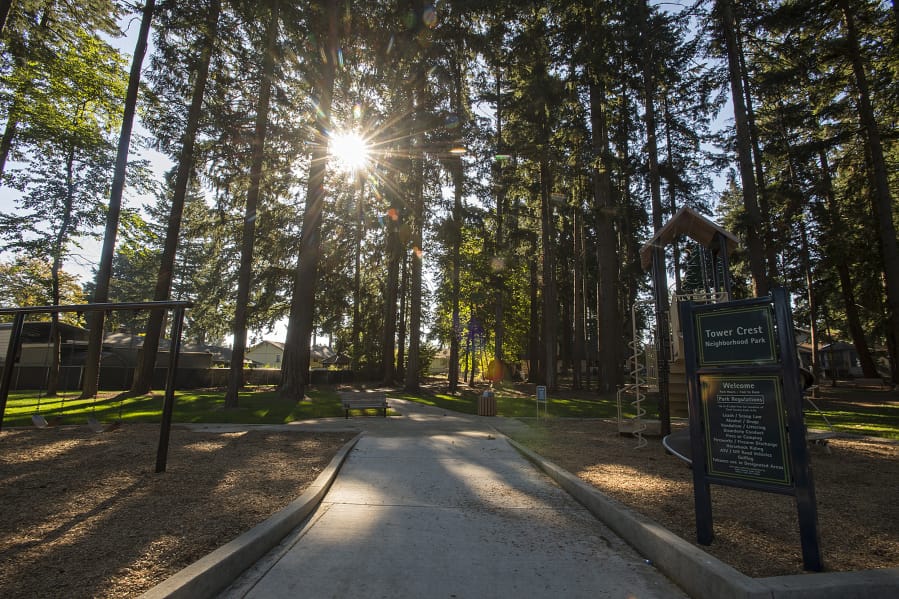The Clark County Planning Commission on Thursday signed off on a proposal to support public trail development in the county by adding trails to the list of project categories that can be funded by Park Impact Fees. The County Council is scheduled to make a final decision on the issue in December.
Park Impact Fees are one-time charges that the county imposes on new construction projects in order to help pay for the cost of acquiring and developing public open spaces and parks to serve the growing population. Funding from the fees can only be spent on certain projects, and trails currently aren’t an allowed use.
The county has discussed adding trails to the list since the late 1990s, said Parks and Lands Division Manager Bill Bjerke. But the idea didn’t make headway until earlier this year, when the county council directed staff to review the fee program and consider adding trails.
“It is our intent to go forward and actually implement this plan this year,” Bjerke told the planning commissioners.
Bjerke touted the health, recreation and connectivity benefits of trails, and said that the county already has a list of priority trail projects in its Capital Facilities Plan that could benefit from Park Impact Fees along with other sources of funding.
The proposed change would result in a fee hike due to the inclusion of trails in the formula, but Bjerke said staff recommended delaying that increase for at least the next year.
Park Impact Fees are already on the rise, he noted. In 2016, the council passed an update to its Comprehensive Plan that included a series of park fee hikes — 80 percent in 2017, 90 percent in 2018 and 100 percent 2019. The steep hikes were intended to catch up following a 13-year period in which the fee rates had been left flat.
The fees are calculated based on a formula that incorporates multiple factors such as level of park development in the area around proposed housing projects, so individual project fees can vary substantially. In 2016, before the increases began, the fees ranged from $1,120 to $2,016 per lot or unit.
Clark County builders balked at some of the proposed increases back in 2016, arguing that the rapid fee hikes could hamper housing construction in the area and urging the county to adopt a more gradual phase-in, but the planning commission and council stuck with the three-year schedule.
At Thursday’s meeting, Bjerke said the parks staff would recommend updating the county code, but sticking with the previous fee increase schedule for 2019.
The change would allow the county to begin using newly collected Park Impact Fees to fund trails, even though the fees themselves wouldn’t be any larger than they would otherwise have been without the change. A separate fee increase for the trails would need to be adopted by the council at some point in the future, Bjerke said.
“My guess is somewhere after 2019,” he added.
The planning commission adopted the staff recommendation in a 5-0 vote with no discussion. The proposed amendments will now head to the county council for evaluation. The council is schedule to hold a Dec. 12 work session and a Dec. 18 public hearing. If adopted by the council, the amendments would take effect in January.
Ryan Makinster, Building and Industries Association of Clark County government affairs coordinator, said that his organization hasn’t heard feedback from its members about the proposed changes. The association has been briefed about the issue, he said, but has not taken an official position.
“We support trails and believe they’re an important part of the parks system,” he said. “We wouldn’t support an increase in the Park Impact Fees – which this would allow — without having a broader discussion first. No matter what the outcome is with (the trails amendment), we’d rather start that discussion now.”




